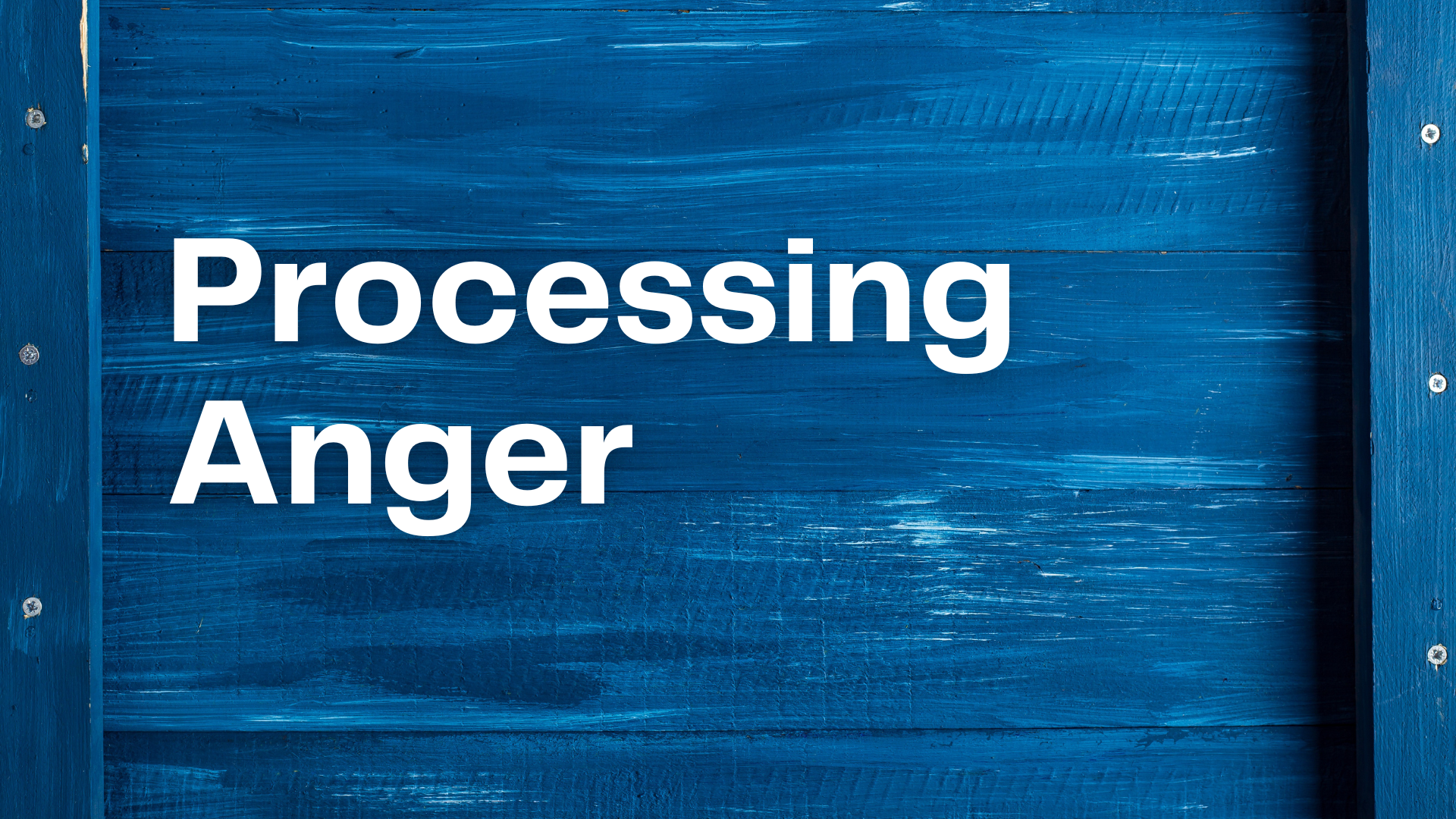Processing Anger
How Do I Deal With Anger?

Do you believe anger is off the chart in today’s world? I do! This acceleration finds expression in the workplace, at the grocery store, in fast food drive-thru lines, and wherever lines are formed; among political candidates, road rage, and most anywhere we look. There seems to be an unholy tension that’s attached itself to people everywhere. It is anxiety magnified.
What is the solution to this widespread dilemma? I believe it’s personal accountability! Individuals must learn to practice personal anger management. Usually, we hear about judges sentencing felons and even those charged with misdemeanors to sign up for anger management classes. This is perhaps a good idea, and probably long overdue.
The Bible tells us to
“be angry and sin not”
(Ephesians 4:26-27). It seems that God allows for anger, but never anger unchecked. The second part of this verse says, “Let not the sun go down on your wrath.” I’m not sure He’s referring to a definite 24-hour period, but rather asking us to deal with our anger in a timely fashion – one that prohibits anger from taking a foothold in our soul. The third part of the verse says, “And neither give place to the devil.”
Misdirected anger is devastating and suppressed anger leads to depression. Depression is anger turned inwardly!
Have you ever felt anger and did not understand why? Sure you have! It’s during those times we need to stop and ask the Holy Spirit to reveal the root cause of this unwelcome emotion. The Holy Spirit beckons us to push past the symptoms and resolve the deeper issue. Kill the root and heal the symptom! We are action-reaction creatures. No one wakes up in the morning and says, “I think I’ll become out-of-control angry today and really hurt someone’s feelings.” Of course not! But we can allow circumstances to assault and cause us to react in an angry fashion. And counting to ten is a ridiculous notion. One can count to one-hundred and still “level the city!”
Let’s face it. Anger is a choice. But the apostle Paul makes it clear that we can become angry and still not sin. How? We must learn to first redirect our emotional in-put and therefore assure healthier out-put. Let me explain. Anger is an inside-outside job. Someone does or says something to us that makes us angry. This happens all the time. Let’s be honest. We all make someone mad along our journey. The fallen nature is a fierce contender. And here’s where each incident pivots. We attach an emotion to everything that happens to us. Many times what happens hits a “trigger” point – those sensitive, unresolved past anger issues. Those issues, already close to the surface, don’t take too much to re-ignite. Add another incident and an emotional explosion becomes imminent. How do we redirect anger’s overloads? Through forgiveness. Married couples who refuse to forgive one another face ultimate, perhaps even life-altering consequences. Someone said, “Marriage is the union of two forgivers.” And no truer words have ever been spoken. To hold on to past hurts and offenses – leading to anger – produces hell on earth. The antidote to anger is to immediately forgive our perpetrator. By the way, forgiveness has nothing to do with emotions. It is an act of the will mixed with faith! Then, when emotions have settled, and our thoughts are no longer intent on getting even, or winning, we can move forward with explanations and apologies.
I have learned that to nurse an offense is to hold a grudge. To hold a grudge is to not allow for reconciliation. To not allow for reconciliation is to build an ongoing case. To build an ongoing case is to allow depression to move in. And to allow depression a foothold is to spend our lives angry without knowing why. None of us remember with one-hundred percent accuracy the details of our lives, but because we often assign negative emotions to those circumstances, we spend our lives in concealed anger, always fighting depression. The soul realm of a man- mind, will and emotions – is an area that many Christians have failed to successfully understand and navigate.
So, for you “list” people (like me!) the next time you get angry, consider the following strategy:
- Choose your battle wisely.
- Ask yourself, “Is this worth a fight?”
- Release your perpetrator through forgiveness.
- If you can’t let it go, wait until the negative emotion has subsided and you’re able to think and reason more clearly.
- Ask the Holy Spirit to help you.
- If you have to approach the person, then couch your reasons in “I” terms. For example, “I need you to help me understand something. This is how I felt – right or wrong. Can you help me understand why you said or acted in that manner?”
- Give any unmet expectations to the Lord and move on in unity.
Pastor, is this easy to do? After I chew through five pencils and gnaw on my right wrist, I have to say, “No,” but it sure is rewarding in the long run. After all, consider this, if you don’t forgive and move on, there’s a good possibility that you’re lying awake at night growing a five-pound baby ulcer, while they lay at home soundly asleep. Weigh the choices and walk anger-free! Think about it. Our jails and prisons are full of people who wish they had not allowed anger to take hold in their lives.
